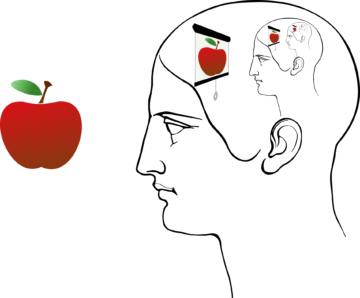by Jochen Szangolies

There are two main problems that bedevil any purported theory of the mind. The first is the Problem of Intentionality: the question of how mental states can come to be about, or refer to, things in the world. The second is the Problem of Phenomenal Experience: the question of how come there is ‘something it is like’ to be in a certain mental state, how mental content is something that appears to us in a certain way (this is also often referred to as simply the ‘Hard Problem’).
These problems are often assumed to be separate issues. However, in a recent article published in the journal Erkenntnis (pre-print version), I propose that one can make progress on the Problem of Intentionality, but at the expense of leaving the Hard Problem unsolvable—indeed, making the task of ‘solving’ it a kind of conceptual confusion: an attempt of capturing the non-structural, non-relational in terms of structure and relation.
In a nutshell, I propose that states of mind are intentional because, through what I call the von Neumann-process, their own properties are represented to themselves; to the extent that these properties then reflect those of objects in the world, the properties of those objects are available to them. Hence, a mental state becomes ‘about’ the world by being, first and foremost, about itself. Read more »


